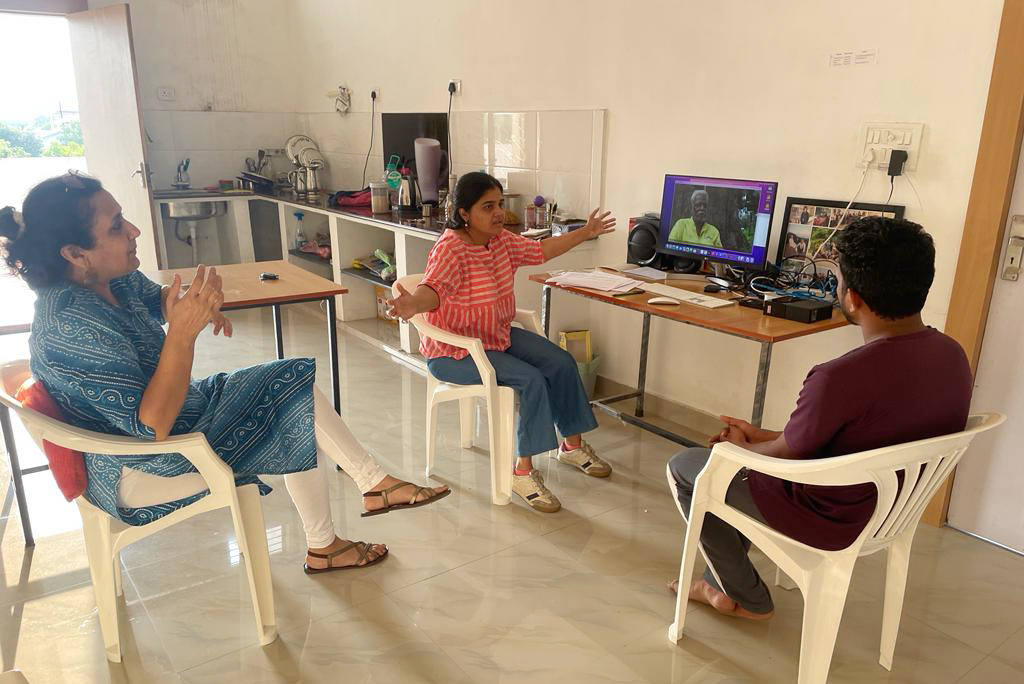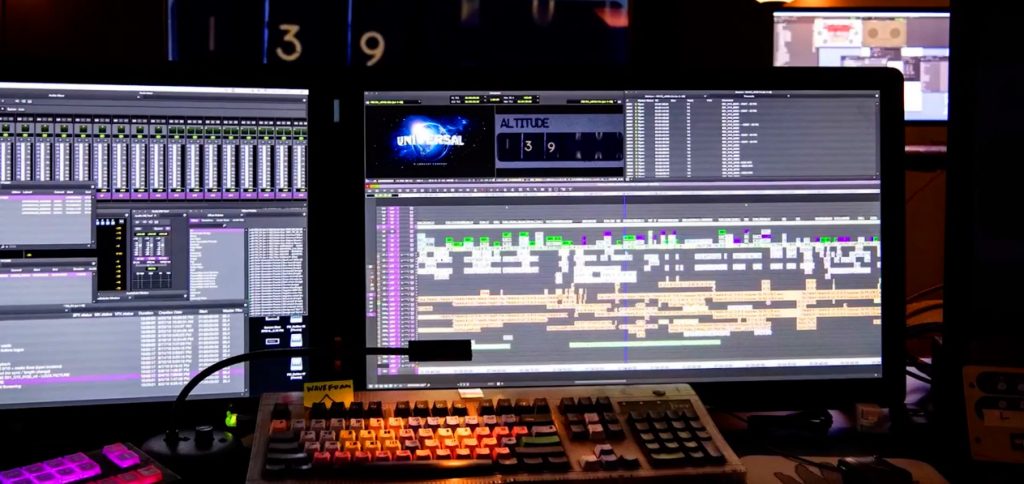“The editor has a huge amount of footage that needs to be seen through completely and definitively… there can be no short cuts for this!!
– Pooja Iyengar
Editing is a professional, meticulous, and pure psychological process. Like many other key methodologies in filmmaking, editing demands discipline, professionalism, and analytic skills for micro details. However, editing demands even more, regarding dedication and complete devotion for storytelling.

Whether you’re working on an independent short film, a Bollywood/Hollywood feature film, or a television show, the importance of the art of film editing cannot be overstated. Editors have the power to rearrange scenes and jump forwards or backward in time for either dramatic or comedic effect. An editor can hold on a shot longer so the viewer picks up extra information, or they can purposely withhold information to better set up a twist ending.
Being a good editor is far beyond getting familiar with NLEs (Non-linear editing) and their technical muddles. Having a healthy approach to the mission and a good relationship with the director is a must. Furthermore, in some cases, the editor is the storyteller, the director, and the producer simultaneously by having a key role in paving the pathway of the film. For instance, in reality-shows, the editors are the directors as they have the most crucial role in dictating where and how the story develops.

The psychology behind editing, “It is a constant creative struggle. At the start, the editor has a vast amount of footage that needs to be watched entirely (and yes… the editor should watch all the footage, there are no shortcuts for that). The rough cut is the most difficult one to achieve (from my perspective as an editor) because there is no way of getting back. Then, the journey for the final cut begins. Although there is a significant difference between editing an independent film compared to Bollywood/Hollywood’s feature, the concept is very much similar, as each of them has its DNB (Do Not Break) point. See the graph below. Generally speaking, DNBs characterize mainly independent productions, since the editor works alone and has his own inner struggle to puzzle out the story”, said Pooja Iyenger, the film editor.

With an experience of more than a decade, Mrs. Pooja Iyengar has worked on several feature length and short documentaries. Due to a keen interest in wildlife and environment based issues; she has been mostly associated with documentaries film dealing with human- animal conflicts and the ever-pressing issue of climate change. Her recent work includes editing a PSBT film ‘ The Mustard Seed’ in 2018 and editing a Film Division film ‘ The Monk who won the Grammy’ in 2017.
Notable among the films that she has edited are, ‘Gaur in my Garden’ commissioned by PSBT, The documentary looks at human-animal conflict in Kotagiri in the Nilgiri Mountains, a key biodiversity hotspot in India. The film was the official selection at the Festival of South Asian Documentaries, Kathmandu Nepal.
‘Tiger the Death Chronicles’ , another film that she edited for Earth care production, is an investigation into the declining tiger population in India.
‘Tales of Gorakhpur’ a documentary that she edited for The Energy and Resource Institute (TERI) was a story of an Indian city grappling with the dual pressures of urbanization and climate change and the efforts of local stakeholders to make Gorakhpur climate resilient.
‘Reviving Faith’ a documentary that she edited for ‘The Energy and Resource Institute (TERI). The film is about the sacred groves of the Himalayas that are still alive because of the faith of its people. It traces the struggles of the Himalayan people to save their forests from being plundered. Her work in “A drop of Sunshine” (The film explores a controversial, but ultimately empowering, view of Schizophrenia) won the ‘Rajat Kamal’ for Best Educational Film at the 59th National Film Awards.
‘Back to the roots’, another film edited for TERI. This film captures the beautiful traditions of the Khasis of Meghalaya, the Meiteis of Manipur and the Vaishnav monasteries of Assam. It brings to fore the ancient and increasingly fragile link between human cultures and biodiversity. Her directorial venture ‘Dr Paws’ which highlights the advantages of Animal Assisted Therapy as a tool for patients to cope with mental issues like Autism, Schizophrenia and Dementia, won the best documentary at the WeCare film festival in Delhi and it also won the best documentary award at the SCRIPTS film festival held in Cochin. She is currently working on a film on a lesser known sect of Buddhism known as Vajrayana Buddhism. The film evolves through the story of the monks from the Palpung, Sherabling monastic seat who won a Grammy in 2003 for their chanting.
Every film that she has edited has been after many hours and deep conversations and collaborations with the director. Each film has a different topic and she gets to learn about all these different things that are happening across the country. She has been doing documentary editing since 2003. She did her Masters in Mass Communication from Jamia Millia Islamia.
Mrs. Iyenger says that, ‘In my institute they teach all aspects of documentary making and I was most interested in editing. I always feel that documentaries are made on the editing table and trying out various permutations and combinations to get the feel of the sequence right, has always fascinated me.’
Well, Editing is a very time taking task with hours of footage to be viewed and then a story to be made with all the raw footage. When she was single she used to sit the whole day and sometimes night to edit and complete films on a deadline. Once she became a mother, things got tougher. She realized that she will have to manage time to edit and to look after her child. Thankfully she had filmmakers who had trust in her and her editing skills and worked around her timings. Instead of spending hours with the footage, she spent quality time and gave results. Time management is the key to managing both professional and personal life.
‘Any film that gives a slice of life and builds characters really fascinates me.’ states Mrs. Lyenger.
One of her favorite documentaries is Superman of Malegaon. Superman of Malegaon revolves around the passion which residents of Malegaon, a city in Maharashtra India, have for film making. The town is fraught with communal tensions, poverty and hardship. To get away from all this, residents of Malegaon take to making spoofs on Bollywood movies. This documentary is a journey through that movie making process. The second she likes is ‘Born in Brothels. Briski, a documentary photographer, went to Kolkata to photograph prostitutes. While there, she befriended their children and offered to teach the children photography to reciprocate being allowed to photograph their mothers. The children were given cameras so they could learn photography and possibly improve their lives. Their photographs depicted a life in the red light district through the eyes of children typically overlooked and sworn off to do chores around the house until they were able to contribute more substantially to the family welfare. Much of their work was used in the film, and the filmmakers recorded the classes as well as daily life in the red light district.
Pooja Iyenger explains that filmmaking is a collaborative effort. It’s always made with conversations between the director and the editor. The editor has to completely understand the vision of the director. If both of them are not in sync then it’s difficult to put the director’s vision on the timeline. Sometimes we have a script in our mind but on the editing table, the film gets a completely different shape. When I am editing I go through the rough footage and understand the directors script and on seeing the visuals I discuss the script and the changes which I feel is relevant to the script and once we are in agreement we work on the film, says Iyenger. To the new editors, Iyenger says it’s a job that requires a lot of patience. Films are made on the editing table so always be open to experiments and always be open to listening to more ideas. Watch a number of films, understand the rules of editing and then creatively try to break those rules and develop your own style.





